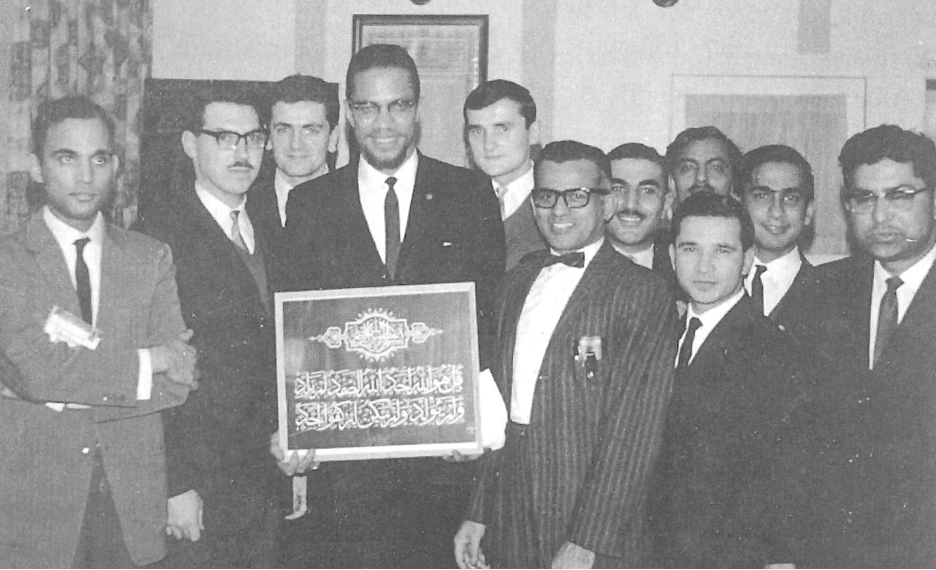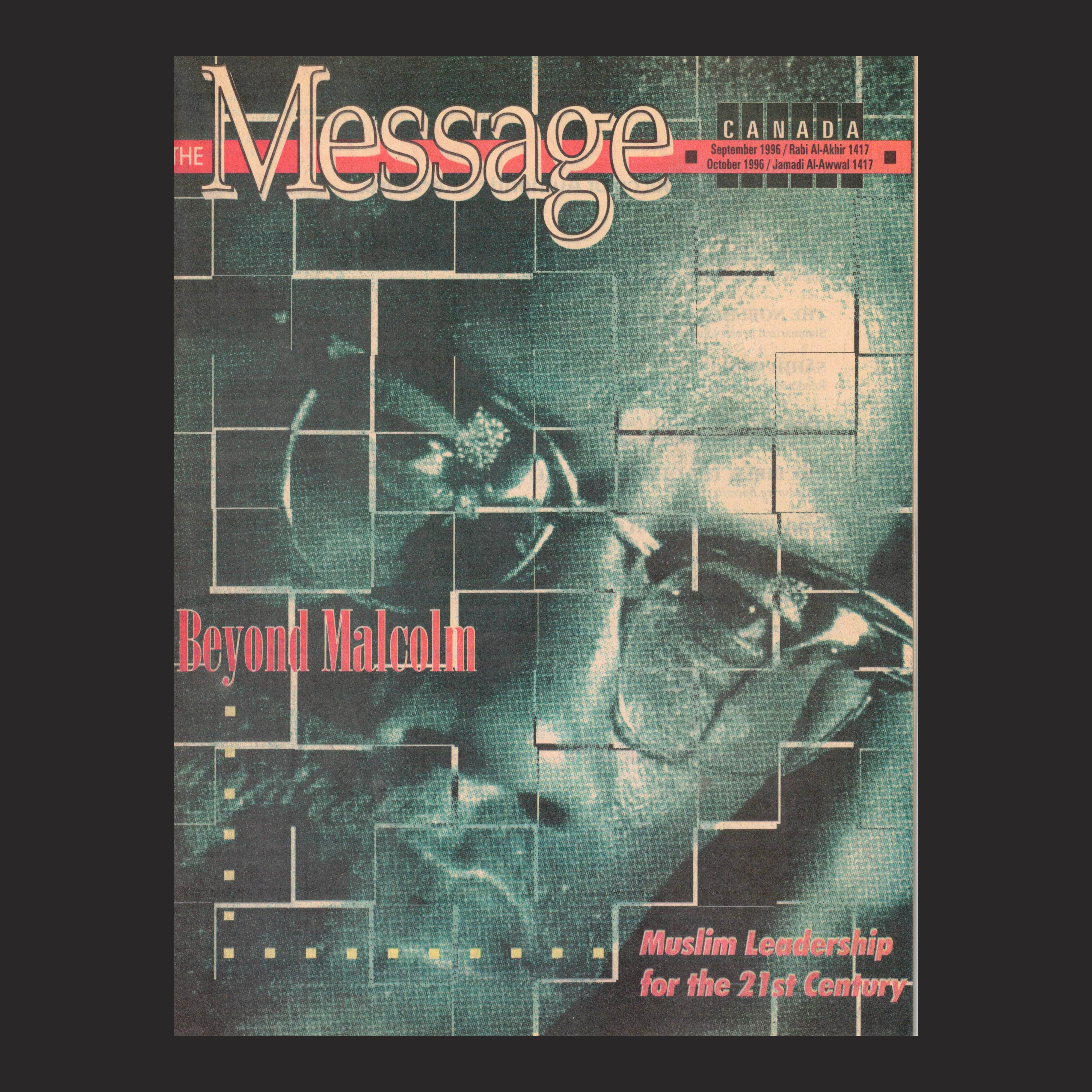
From the Archives: Honouring Malcolm X's Legacy in Canada
May 19, 2025
May 19, 2025 marks 100 years since Malcolm X was born. Reflecting on the story of el Hajj Malik el Shabazz, also known as Malcolm X, activist Abbas Muntaqim describes Malcolm’s life as “one of the most beautiful transformations” towards freedom.
In the collections at the Muslims in Canada Archives, Malcolm is described as “the martyr of Islam” – denoting the ways that his life and impact continue to be understood by many Muslims as eternal and with just cause. In a recent interview with Chris Hedges, Farah El-Sharif referred to Malcolm X as the most important Muslim thinker in the history of Islam on Turtle Island: “We call him the great American shahid, the martyr of America.”
Malcolm X was a Black revolutionary, a devout Muslim, and a people’s organizer. Malcolm contributed to the liberation struggles of Black and oppressed peoples in the US and globally. Many decades later, his influence continues to shape movements towards independence and sovereignty. This legacy is widely honoured by Muslim Canadians throughout our collections at the Muslims in Canada Archives. We’re pleased to share archival materials that shed light on Malcolm’s reach among Muslims across Canada.
 Photograph by Amjed Syed, reproduced in Minarets on the Horizon by Murray Hogben.
Photograph by Amjed Syed, reproduced in Minarets on the Horizon by Murray Hogben.
The iconic photograph of Malcolm X in Toronto is perhaps the most popular example of Malcolm X’s presence in Canada. Photographed by Amjed Syed, the image documents Malcolm among Muslim community leaders including Murray Hogben. Hogben would later reproduce the photograph in his book, Minarets on the Horizon — a detailed look at the Muslim presence in Canada. The photograph signals to the way that Malcolm X was celebrated and revered in Canada, not only in legacy but also in life. Malcolm X was assassinated only months later. Malcolm’s family has since sued the FBI, the CIA and the NYPD for their role in his murder, linking the assassination to forces of white supremacist oppression that Malcolm spent so much of his lifetime resisting.
 Courtesy of Naseer (Irfan) Syed fonds.
Courtesy of Naseer (Irfan) Syed fonds.
Other recorded interactions with the work and teachings of Malcolm X can be found in Muslim Canadian magazines, newspapers, and pamphlets. For example, in the MacMinaret, a newspaper published by the McMaster Muslim Students’ Association, a front-page article from 1990 describes Malcolm was “a unique leader that Black Americans from Canada to Brazil may not see again for years to come.” The article goes on to say that remembering Malcolm should not be limited by an indulgence of nostalgia but rather should take heed of his message and strategy: “His political action was aimed at the complete destruction of the capitalist, imperialist system and the cultural domination of the West, and the establishment of justice based upon values and self-determination.”
 Courtesy of Naseer (Irfan) Syed fonds.
Courtesy of Naseer (Irfan) Syed fonds.
A number of articles and reflections are also recorded in 1992, coinciding with the release of Malcom X (1992), the biographical drama directed by Spike Lee and starring Denzel Washington. For example, at the Lance, the student newspaper of the University of Windsor, Naseer Syed published an article titled “Malcolm X, the Nation, and Islam”.
Other materials, such as this pamphlet on Malcolm X printed in New York, point to the ways that information about Malcolm X was circulating beyond borders.
 Courtesy of Naseer (Irfan) Syed fonds.
Courtesy of Naseer (Irfan) Syed fonds.
Broadly, Malcolm X’s presence in the Muslims in Canada Archives is important to the documentation of Black Islam and Black Muslims in Canada. These encounters offer a means to ‘write Blackness’ back into the Muslim archives of Canada, where the absence is glaring and systemic. More specifically, Black feminist geographer and memory worker Delice Mugabo writes that Black subjects are evicted from many reflections and discussions about social life, pointing to the ways that anti-Blackness is thus embedded in many scholarly inquiries of Islamophobia. Studying Malcolm’s relationship to Islam, to Blackness, and to the America’s offers an important entry point to further exploring and honouring Black Muslim histories. Relatedly, Mugabo’s research contributes to the study of Black Muslim communalism during the transatlantic slave trade in Canada and the forced conversion of Black Muslim enslaved people to Christianity.
As we honour the life and legacy of Malcolm X amidst ongoing colonialism and imperialism that targets Black and oppressed peoples globally, we invite you to reflect on the futures that Malcolm brought to being through his principled commitment to both virtuous beliefs and actions. 
 Courtesy of Naseer (Irfan) Syed fonds.
Courtesy of Naseer (Irfan) Syed fonds.